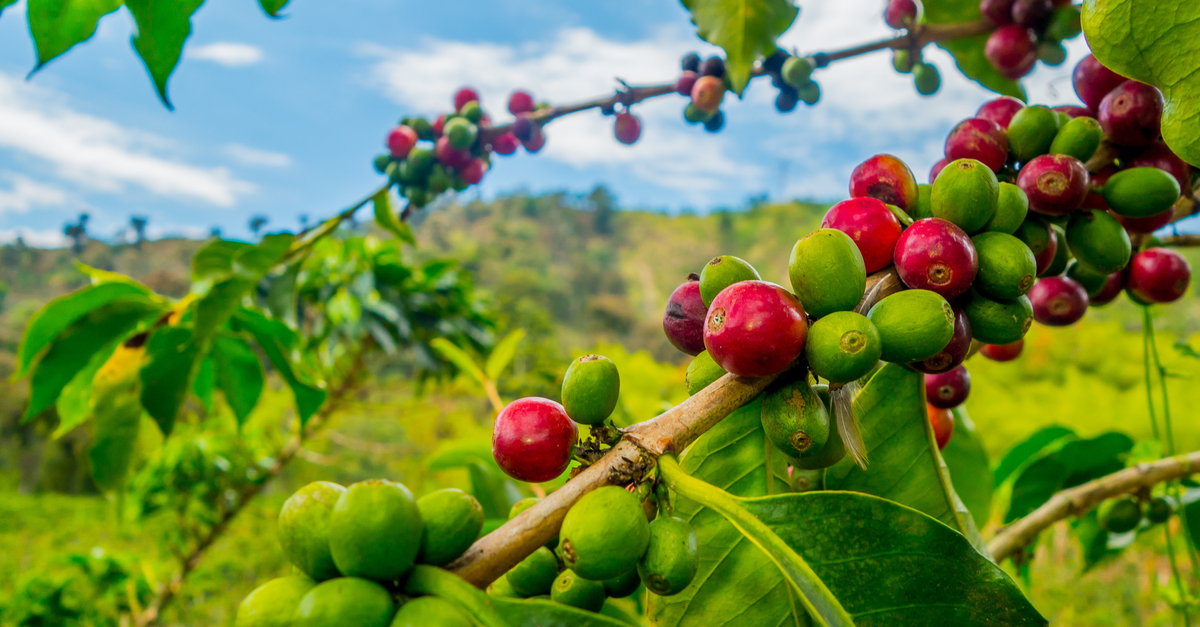
What's new in organic coffee certification?
Last updated: November 9, 2023
The U.S. National Organic Program finalized and issued the Strengthening Organic Enforcement (“SOE”) rule. The new rule strengthens oversight and enforcement of the production, handling, and sale of organic agricultural products. Compliance is required by March 19, 2024.
What you need to know about the SOE Final Rule
Changes to the organic regulations concerning the coffee supply chain:
- Require some previously exempted parties such as certain brokers, traders, and importers of organic products to become certified organic.
- Require National Organic Program Import Certificates for all imported shipments.
- Clarify the National Organic Program’s authority to regulate certification activities and certifying agents.
- Enact new labeling requirements for bulk, non-retail containers that are labeled with organic identity and which records of can be easily traced back in audits.
- Requires certifying agents to conduct unannounced inspections of at least 5% of the operations they certify, complete mass-balance audits during on-site inspections, and verify traceability.
- Require certifying agents to issue standardized certificates of organic operation generated by USDA’s Organic INTEGRITY Database. Certifying agents must also keep the information entered into INTEGRITY accurate.
- Clarify how certified operations may submit changes to their organic system plan.
- Clarify that certifying agents must conduct on-site inspections at least once per calendar year.
- Establish specific qualifications and training requirements for certifying agent personnel.
- Clarify requirements related to organic equivalency programs with foreign governments.
- Clarify that NOP may initiate enforcement action against violators of the Organic Foods Production Act of 1990 (OFPA) and clarify what actions may be appealed and NOP’s appeal procedures and options for mediation.
- Specify certification requirements for producer groups. Producer groups must meet certain criteria to qualify for certification and use internal control systems for monitoring compliance.
- Clarify the method of calculating percentage (%) of organic ingredients in a multi-ingredient product.
- Require certified operations to develop and implement recordkeeping and organic fraud prevention practices. Certifying agents will also be required to conduct supply chain traceability audits and follow information-sharing processes.
Some operators are exempted from the certification requirement, such as:
- Very small farms (e.g., producers whose gross agricultural income from organic is $5,000 or less annually)
- Retailers like grocery stores that only sell or cook/prepare organic food (and do not process it)
- Warehouses that only store packaged organic products (whereas warehouses that store bulk or unpackaged products must be certified)
- A handling operation that only handles agricultural products containing less than 70% organic ingredients, or that only identifies organic ingredients on the nutritional information panel
- Wholesalers that only sell retail-packaged products (whereas those that sell bulk products or nonretail-packaged goods must be certified)
- A U.S. Customs & Border Protection (CBP)-licensed broker
- Logistics brokers (i.e., those that arrange for shipping, storing, transport, or movement of goods)
- Operators that strictly transport organic products
While certain operators may be exempt from organic certification, the National Organic Program (NOP) encourages all operators involved in organic to be certified as they will still need to follow the rules for producing and handling organic products, and many downstream customers may require operators to be certified anyway.
How to become an organic-certified business
If a business is considering getting USDA organic certification, an important first step to take is learning more about the standards, such as those provided by USDA’s Becoming a Certified Operation. Then, the business can contact a third-party organic certifying agency. Third-party USDA-accredited certifying agencies work to certify and re-certify businesses. A list of available organic certifiers is available in the Organic INTEGRITY database. The organic certifier can help a business through the certification process, such as by providing guidance on audit requirements, guidance on making label claims and certification marks, and meeting standards required for the certification.
What’s next for organic in the U.S.?
The NCA will continue to closely follow the enforcement and compliance standards issued by the USDA and will work to keep members up to date. There is also a working group comprised of NCA volunteer members who specialize in organic supply chain compliance. They are working closely with the association to develop an organic compliance toolkit and supply chain tools with coffee-specific examples, such as a sample organic system plan and an organic fraud prevention plan. NCA will also offer an accompanying webinar and virtual workshop in early 2024. In the meantime, continue to check back with us, reference the USDA Organic website, and make sure to watch your inbox for NCA Member Alerts on this topic. NCA Members also have access to the on-demand webinar on organic presented by Quality Assurance International (QAI).
Disclaimer: The content of this resource is intended for informational purposes only and should not be construed as providing legal advice. The NCA makes no warranty of legal applicability or compliance. You should not act upon any such information without first seeking qualified professional counsel on your specific matter.